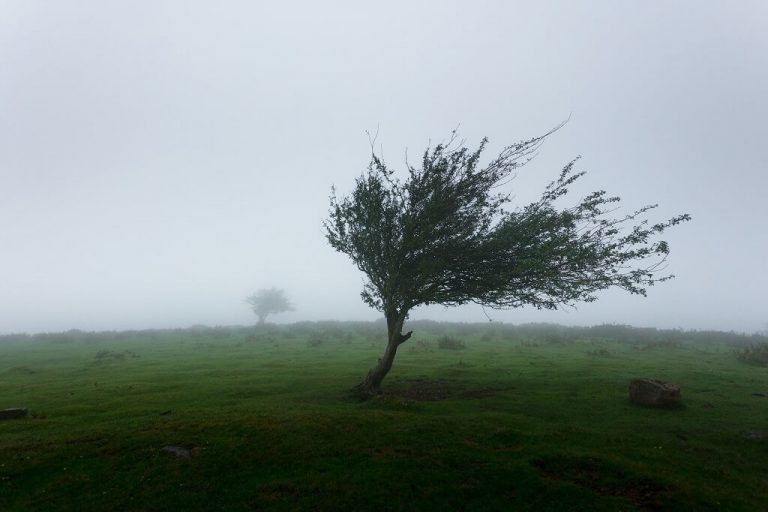Table of Contents [show]
People who live in hurricane regions know all too well how frightening they can be. If you have recently moved to an area that is known for hurricanes, you might want good information before a storm hits your area. Not all hurricanes are as terrible as talked about on the news but understanding these storms will help stay safe, especially in the aftermath. Understanding the difference in storms will give you a better understanding of what might be heading your way.
A Tropical Cyclone vs A Hurricane
In general, a cyclone is a very large, destructive storm with strong winds rotating around the center. A cyclone system has thunderstorms but does not have fronts. On the other hand, a tornado is a very violent storm with very strong winds spiraling around a central point with clouds shaped like a funnel. Tornados, unlike cyclones, are formed over land and are often spun off from Hurricanes.
Tropical cyclones with maximum surface winds less than 99 mph are called tropical depressions. Tropical storms have maximum sustained winds of 39 mph or higher and are known as tropical storms.
Are You Confused Yet?
When one of these storms has winds up to 79 mph, it's called a Hurricane. A hurricane's wind scale is called the Saffir-Simpson Hurricane Wind Scale which is measured between 1 to 5. I'm sure you have heard the term “a Hurricane 2 or a Hurricane 5. These categories are based on the maximum sustainable winds and the higher the category, the more dangerous a hurricane can be to property damage and life.
How Are Hurricanes Formed?
Exactly how or why a hurricane is formed is unknown but everyone is in agreement, there are 2 ingredients that must be present at the time.
One – Warm ocean waters provide the energy the storm needs to become a hurricane. In general, the temperature of the surface water must be 26°C (Celsius) - 79°F ( Fahrenheit) or higher to create a hurricane.
Two – Winds that do not alter very much in speed or direction as the rise in the atmosphere. If winds continually change, they can tear a storm to pieces.
Why Are Hurricanes Given Names?
There are usually more than one hurricane rising up at one time. It can be difficult to keep track of all of them, so they are named. A storm is usually given a name when it becomes a tropical storm. That name will stay with the storm even if it becomes a hurricane. Tropical disturbances and depressions are not given names.
Each year, there is a list of names given to storms in alphabetic order. A list of names is reused every 6 years, but if a storm is very destructive, the name is removed from the list. A new name starting with the same letter will replace that name on the list.
How Hurricanes Influence Our Water Supply
Hurricanes and other strong storms can reap havoc on many scales including power outages, dangerous flooding, damaged homes, a rise in diseases, and unhealthy drinking water. When a hurricane makes landfall or other heavy storms cause flooding, public water supplies, and well water can easily become contaminated and cause many illnesses.
We've all seen news broadcasts talking about stores running out of bottled water just before a pending storm. Everyone will stock up on clean, safe water as tap water during or after a large storm is not considered safe. Better yet, instead of stocking up on bottled water, you should consider getting a Reverse Osmosis Water System, Drinking Water System, or Whole Water Treatment System.
The Dos & Don'ts After A Hurricane
In order to keep you and your family safe from the damage caused by a hurricane, you must use safety precautions. Following the tips below, your family, friends, and yourself can remain safe until and after the hurricane has passed.
Stay Away From Standing Water
Severe storms and heavy rain can cause flooding and are known to knock out power lines. In turn, these downed lines create electrical currents passing through the ground and ending up in standing water. Always stay away from downed lines and standing water including walking, driving, and wading through water.
Have Plenty Of Food & Water
If you have food that has come in contact with flooding water or stormwater, throw it out. This food can make you very sick, even if there are no smells and it tastes fine. Throw out perishable foods that have not been refrigerated during the power outage. Obviously, get rid of foods that have odors, changes in color, or textures.
Pay close attention to any reports from local officials regarding water precautions around or in your home. Stay away from water that has been reported as contaminated especially while making baby formulas. Start over making ice, brush your teeth with filtered water or bottled water only. Wash and prepare food with filtered water, wash your hands regularly, and wash your dishes.
Stay Away From Dangerous Debris
Keep in mind, any debris caused by a hurricane can be potentially dangerous so avoid it. Debris can be anything from fallen trees, tiles from the roof, window panes, and other objects harmed by the storm. Debris can be items loaded with nails, sharp edges, or glass.
Final Note
When a hurricane carves through our lives, it can take some time to get back to some semblance of order. It isn't just buildings that are harmed, people and pets are too. There will be health issues along with inconveniences, such as loss of power, due to damaged lines damaged by the storm. Understanding hurricanes and the dos and don'ts will help you get through this disaster and come out the other end safe and sound.

